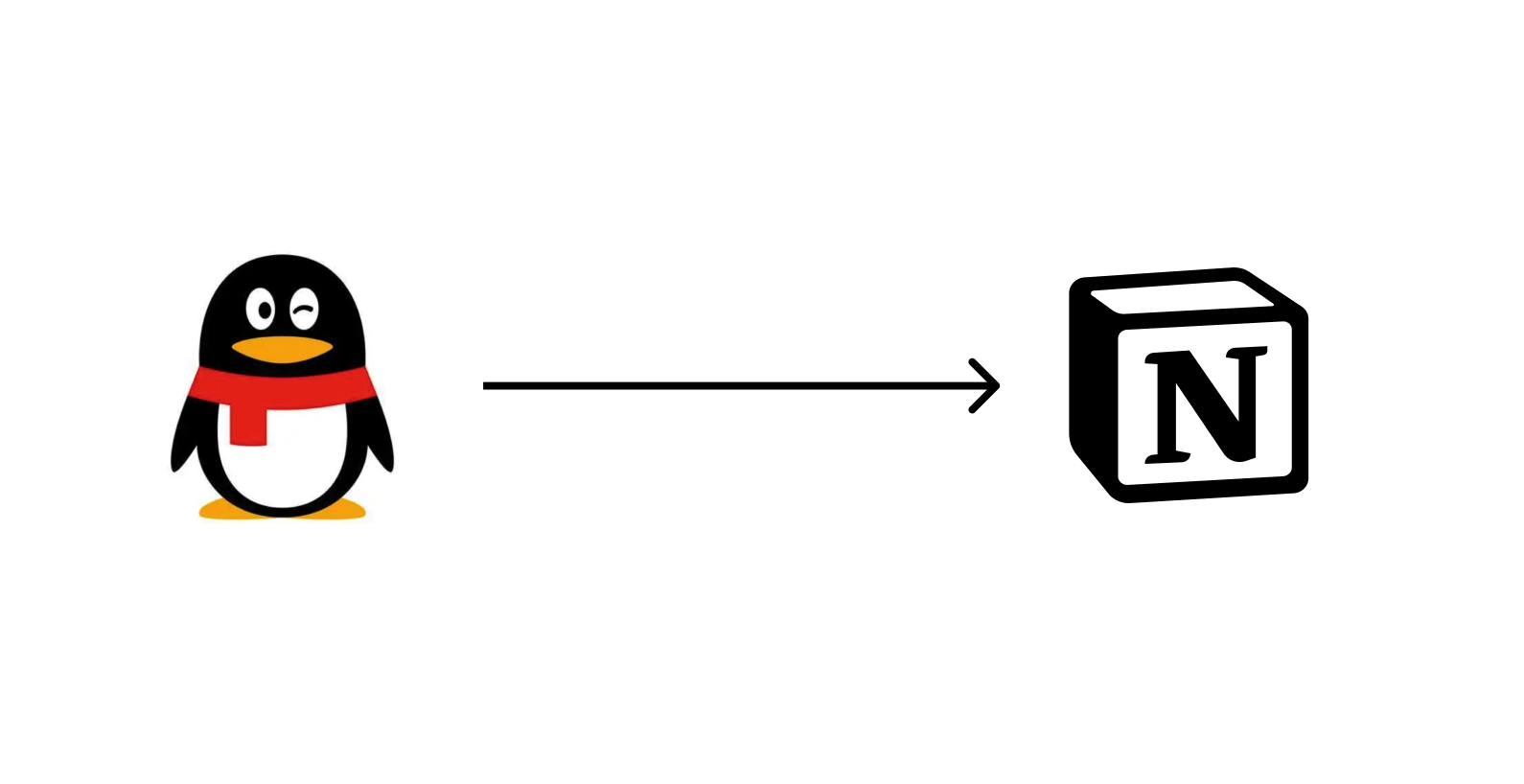
🤖 QQ Bot+notion实现随手记
习惯在QQ置顶一个小号,用于“随手记”。可能是某一时刻的想法,或者是链接等,每天早晨都会看之前的随手记,有些可以看到就做。还有一些是flag,当前可能做不了,需要稍后的,QQ查看之前的聊天的记录,已完成未完成混杂在一起,查看起来有些麻烦。随着notion开放API,便想到了使用QQ或wechat输入(这个两个app每天打开无数次),notion收集。经过研究,wechat接入第三方应用非常的麻烦,可行性太低。QQ则可以借助各种qq bot工具实现第三方的接入。因此我便使用https://github.com/nonebot/aiocqhttp+python脚本实现自己的收集工具,具体过程如下(在腾讯云服务器实现)
https://github.com/Mrs4s/go-cqhttp
-
在https://github.com/Mrs4s/go-cqhttp/releases下载合适的安装包到本地机器,并解压 支持win,linux,macos
-
首次执行
./go-cqhttp,生成配置文件config.yml
-
修改config.yml ,配置账户和密码。记住下面的servers的链接端口。更新详细的https://docs.go-cqhttp.org/guide/config.html#%E9%85%8D%E7%BD%AE%E4%BF%A1%E6%81%AF

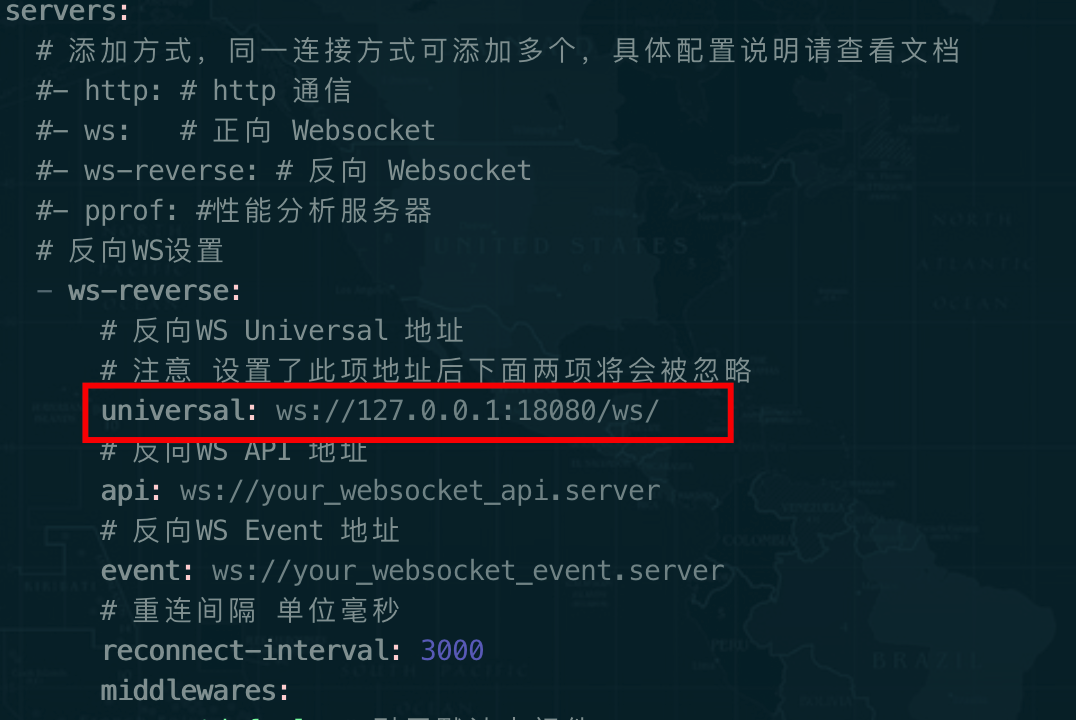
-
再次使用
./go-cqhttp启动,可能会展示二维码,需要使用手机扫描验证后即可登录。ctrl+c终止掉程序 -
使用命令后台运行
nohup ./go-cqhttp &
python脚本与cq通讯
python环境的安装不在赘述。这里使用python sdk aiocqhttphttps://aiocqhttp.nonebot.dev/#/getting-started
-
安装包
pip install aiocqhttp -
执行最小的demo,查看链接状况
from aiocqhttp import CQHttp, Event bot = CQHttp() @bot.on_message('private') async def _(event: Event): await bot.send(event, '你发了:') return {'reply': event.message} bot.run(host='127.0.0.1', port=18080) -
这个时候使用其他的账号给小号发送消息,即可收到小号的回复
python脚本调用notionAPI
-
创建https://www.notion.so/my-integrations
填写name,为工具取名,我这里取名
Collection of materials,以及设置访问权限后,保存。即可看到访问token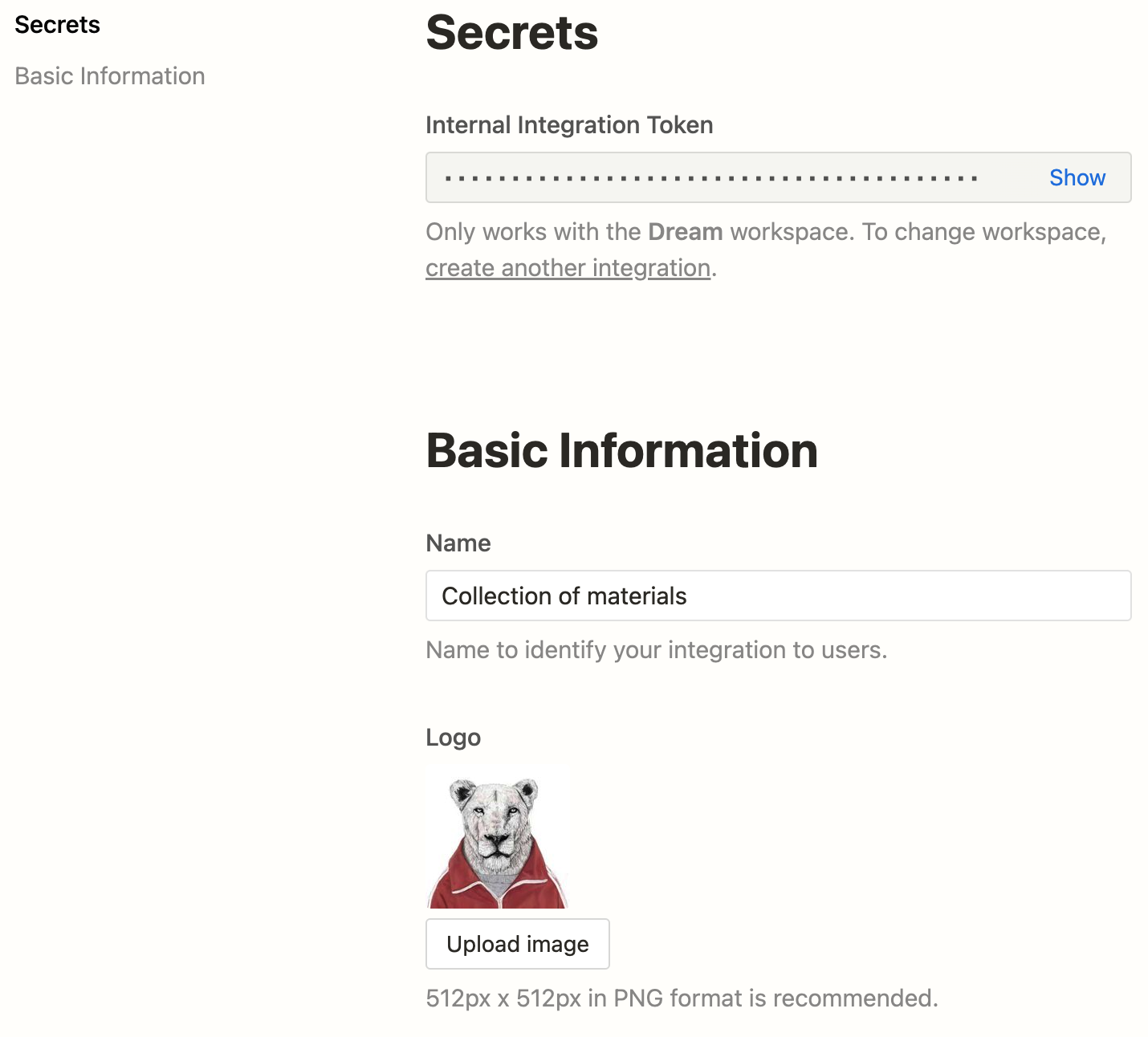
-
创建notion页面,使用模板库的todo。按自己需求修改
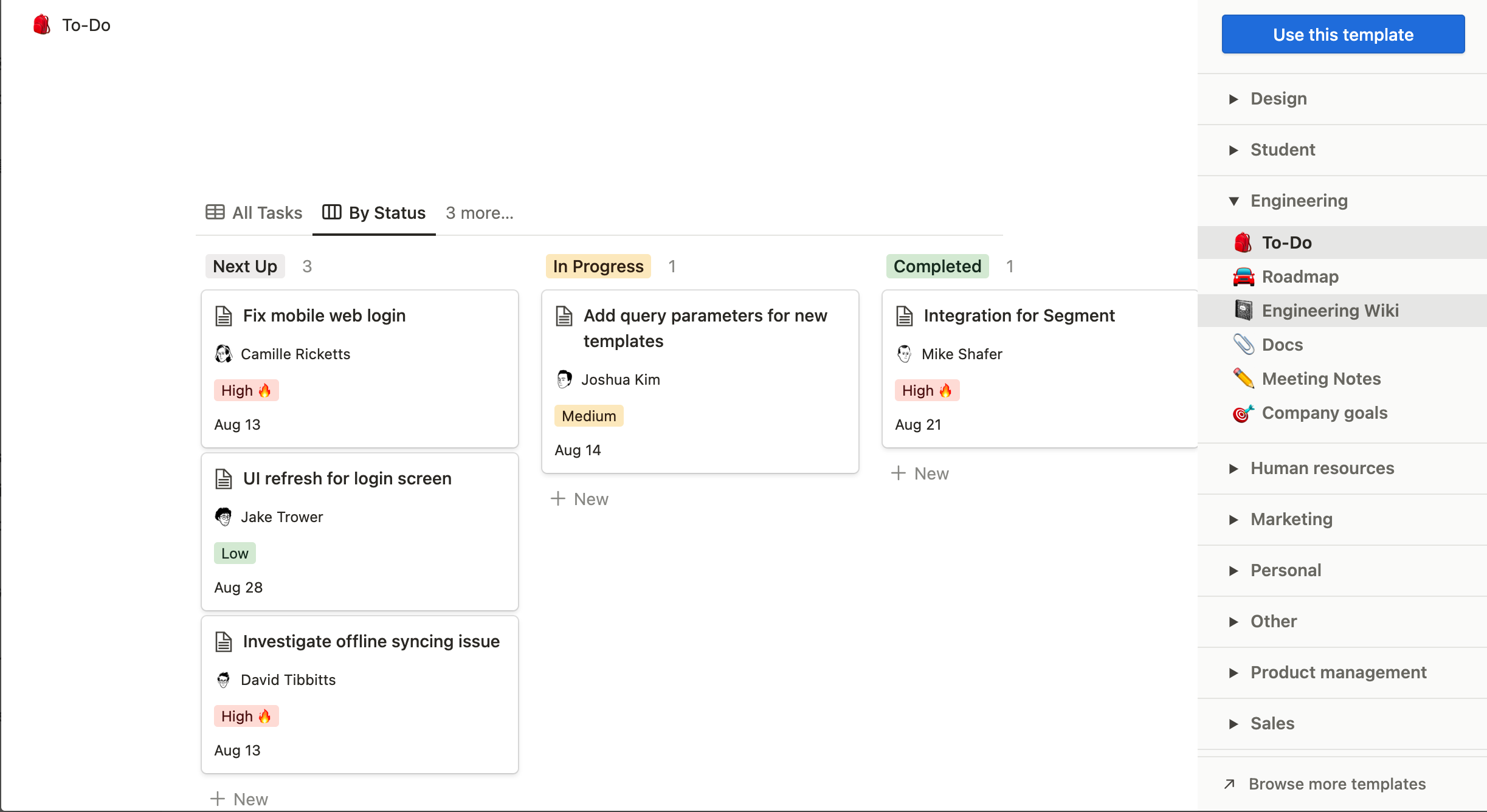
我这里修改Status为Status类型,保留创建时间属性,其他删除。这里的属性关乎API中的数据结构的组装
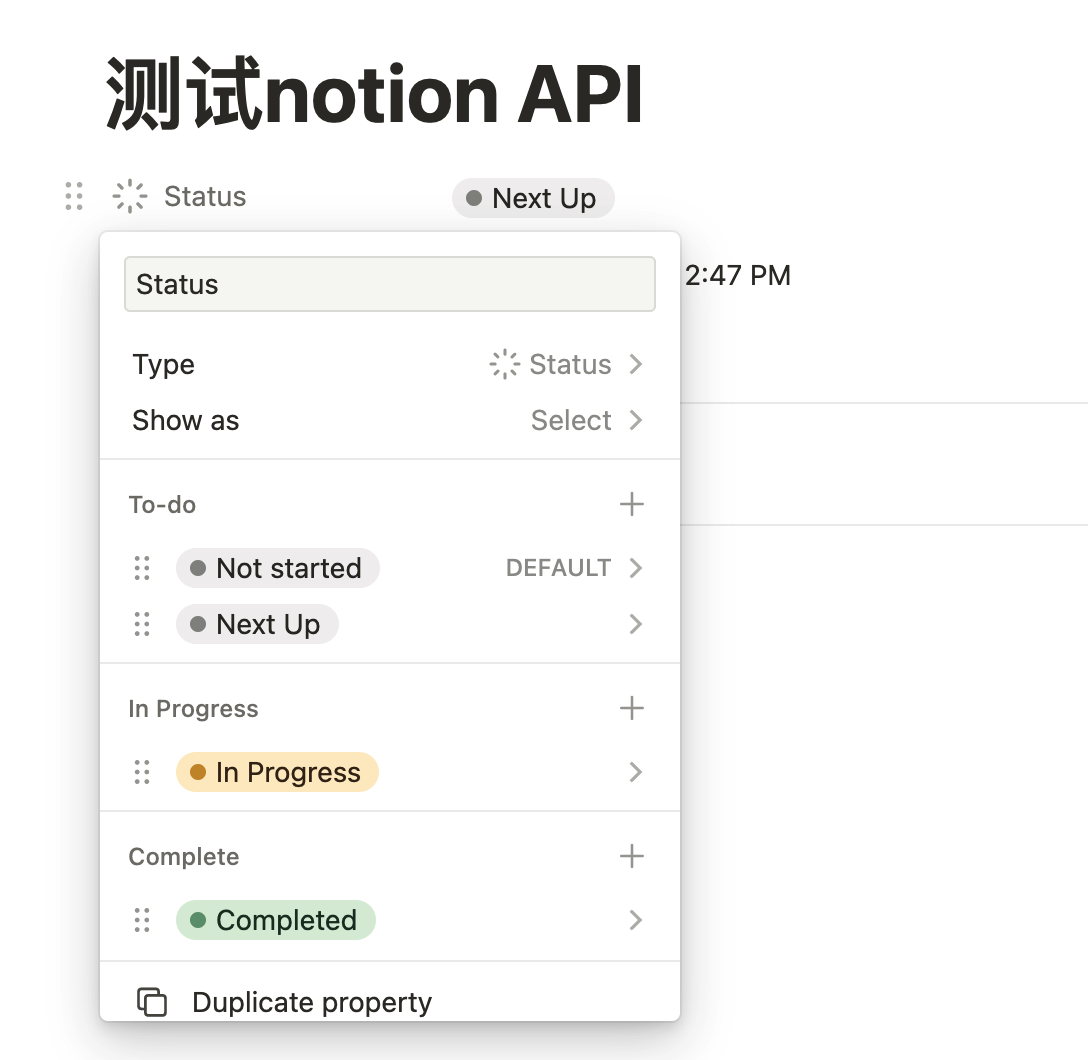
-
给todo页面 选择刚才创建的连接工具
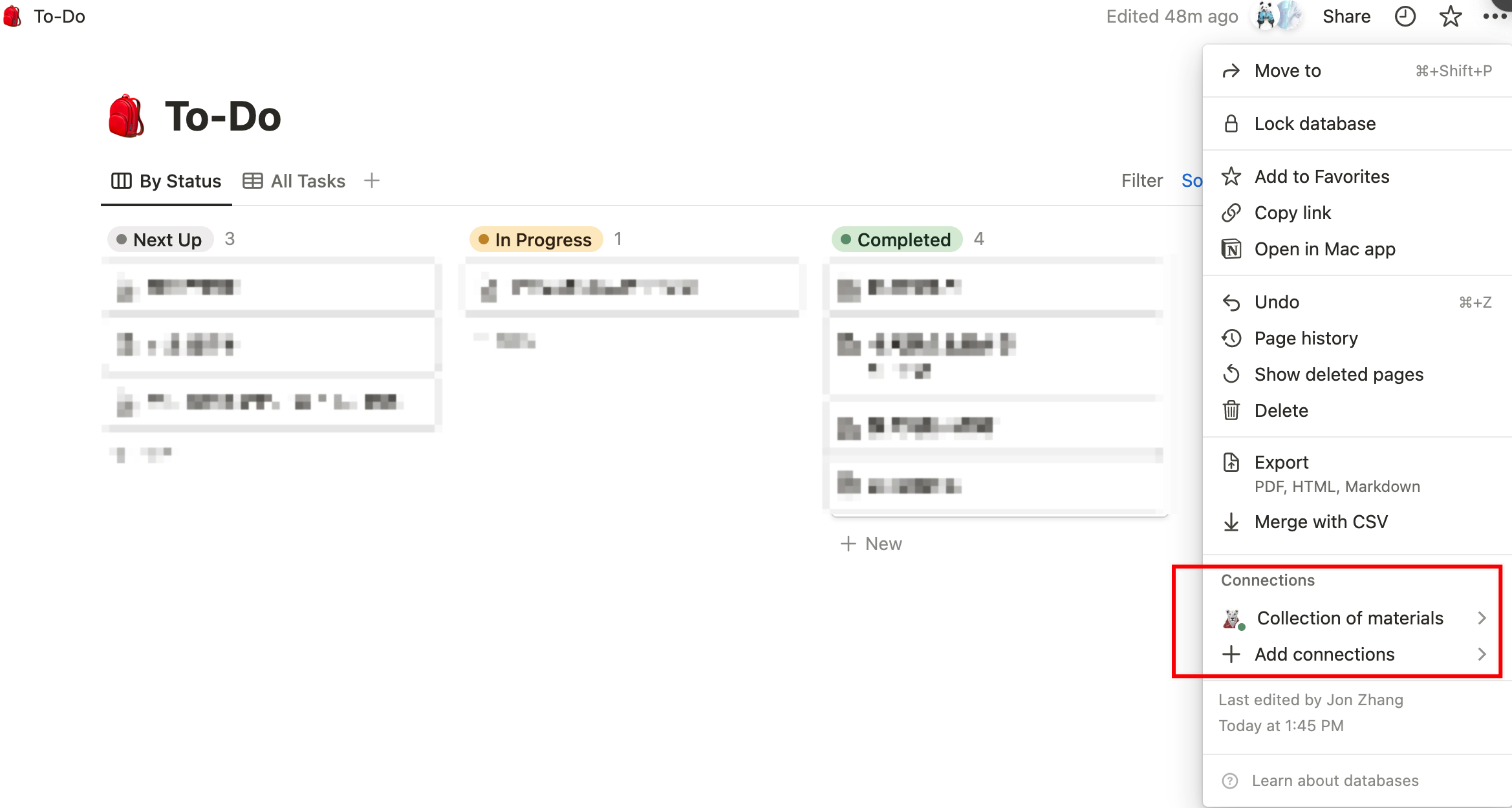
-
编写py代码,验证集成工具的可用性。关于notion的数据结构,参考https://developers.notion.com/reference/intro
import asyncio import httpx class NotionApi: NOTION_KEY = '' # 此处填写集成工具的token database_id = '' # 此处填写database页面的id,可在todo页面的url中找到 def __init__(self): self.url = f"https://api.notion.com/v1/pages" # api地址,可在文档中找到 self.headers = { "Accept": "application/json", "Notion-Version": "2021-08-16", "Authorization": f"Bearer {self.NOTION_KEY}" } async def insert_page(self, content: str) -> str: # database属性 properties = { "Name": { "title": [ { "type": "text", "text": { "content": f"{content[0:14]}" # 截取前14个字符为page的标题 } } ] }, "Status": { "status": { "name": "Next Up" } } } # 页面内容 children = [{ "object": "block", "type": "paragraph", "paragraph": { "text": [{"type": "text", "text": {"content": content}}] } }] # database 信息 parent = {"type": "database_id", "database_id": self.database_id} data = { "parent": parent, "properties": properties, "children": children } async with httpx.AsyncClient() as client: r = await client.post(url=self.url, headers=self.headers, json=data) print(r.text) if r.status_code == 200: return "收集成功!" else: return "收集失败!" notion_database = NotionApi() if __name__ == '__main__': asyncio.run(notion_database.insert_page("测试notion API"))注意:
1. 我们刚才创建的todo页面其实是一个database 2. 我们要创建的各个todo其实是database下面的page 3. 因此我们使用的api 是[创建page](https://developers.notion.com/reference/post-page) -
正常情况下,已经执行成功,可在todo页面看到
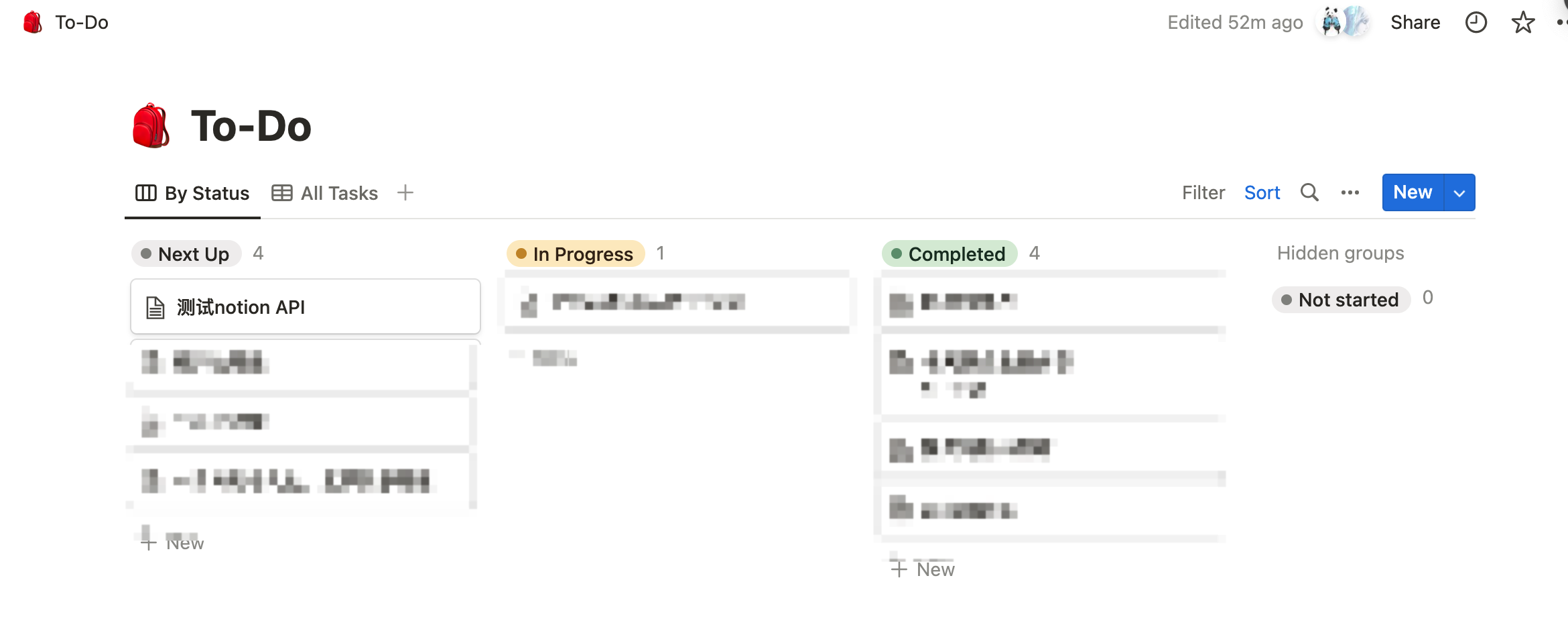
-
完整代码(bot.py)如下,在服务器执行
nohup python -u bot.py > bot.log 2>&1 &# -*- coding:utf-8 -*- from aiocqhttp import CQHttp, Event from action import sent import httpx class NotionApi: NOTION_KEY = '' database_id = '' def __init__(self): self.url = f"https://api.notion.com/v1/pages" self.headers = { "Accept": "application/json", "Notion-Version": "2021-08-16", "Authorization": f"Bearer {self.NOTION_KEY}" } async def insert_page(self, content: str) -> str: # database属性 properties = { "Name": { "title": [ { "type": "text", "text": { "content": f"{content[0:14]}" } } ] }, "Status": { "status": { "name": "Next Up" } } } # 页面内容 children = [{ "object": "block", "type": "paragraph", "paragraph": { "text": [{"type": "text", "text": {"content": content}}] } }] # database 信息 parent = {"type": "database_id", "database_id": self.database_id} data = { "parent": parent, "properties": properties, "children": children } async with httpx.AsyncClient() as client: r = await client.post(url=self.url, headers=self.headers, json=data) print(r.text) if r.status_code == 200: return "收集成功!" else: return "收集失败!" notion_database = NotionApi() bot = CQHttp() @bot.on_message('private') async def _(event: Event): n = await sent(notion_database.insert_page(event.message)) await bot.send(event, n) bot.run(host='127.0.0.1', port=18080)
总结
整个过程中的难点是对notion API的理解,一开始以为添加todo是create a database,几经尝试后才搞清楚关系,这一点需要注意。其次是api 数据结构的组装,需要多查看https://developers.notion.com/reference/property-value-object